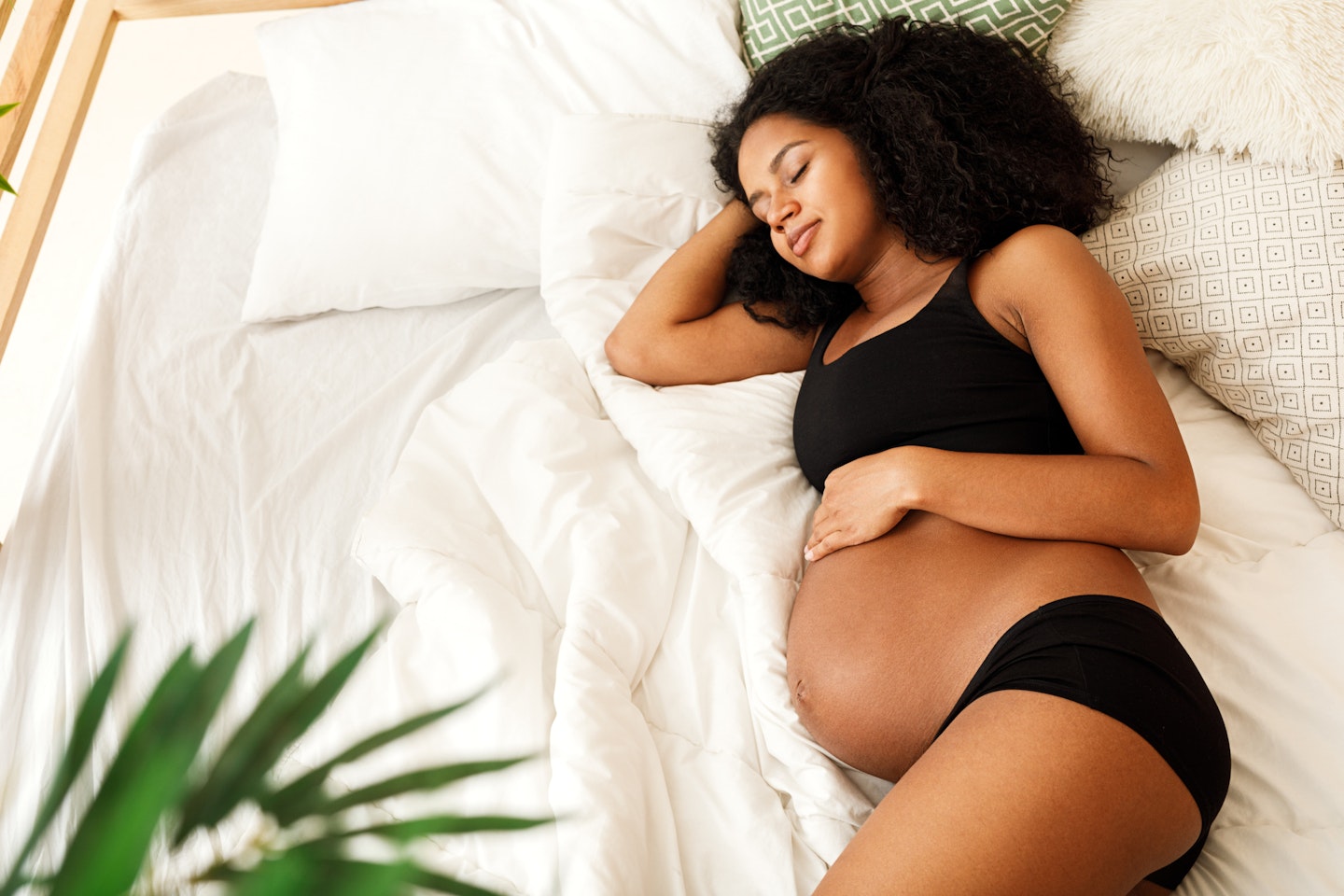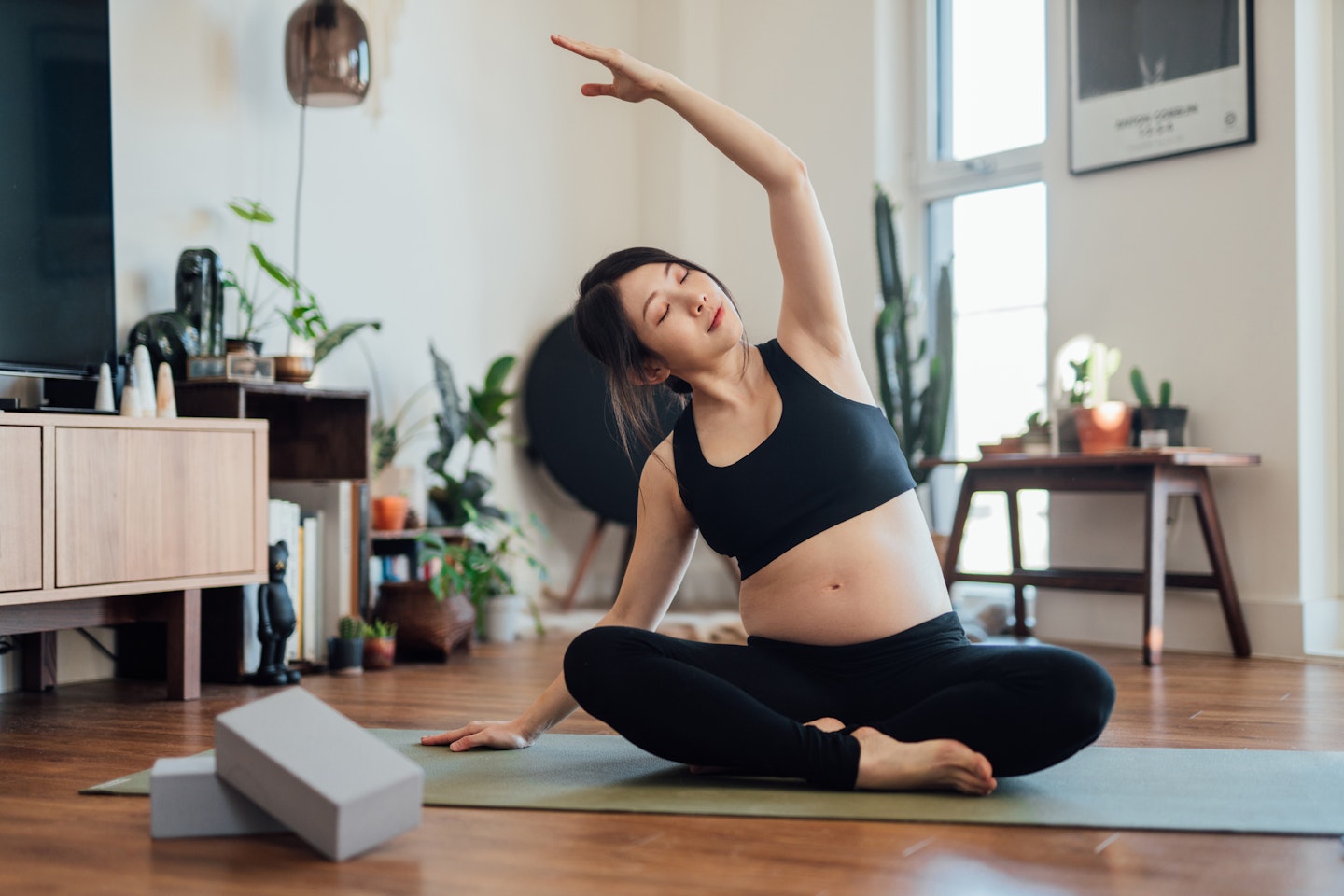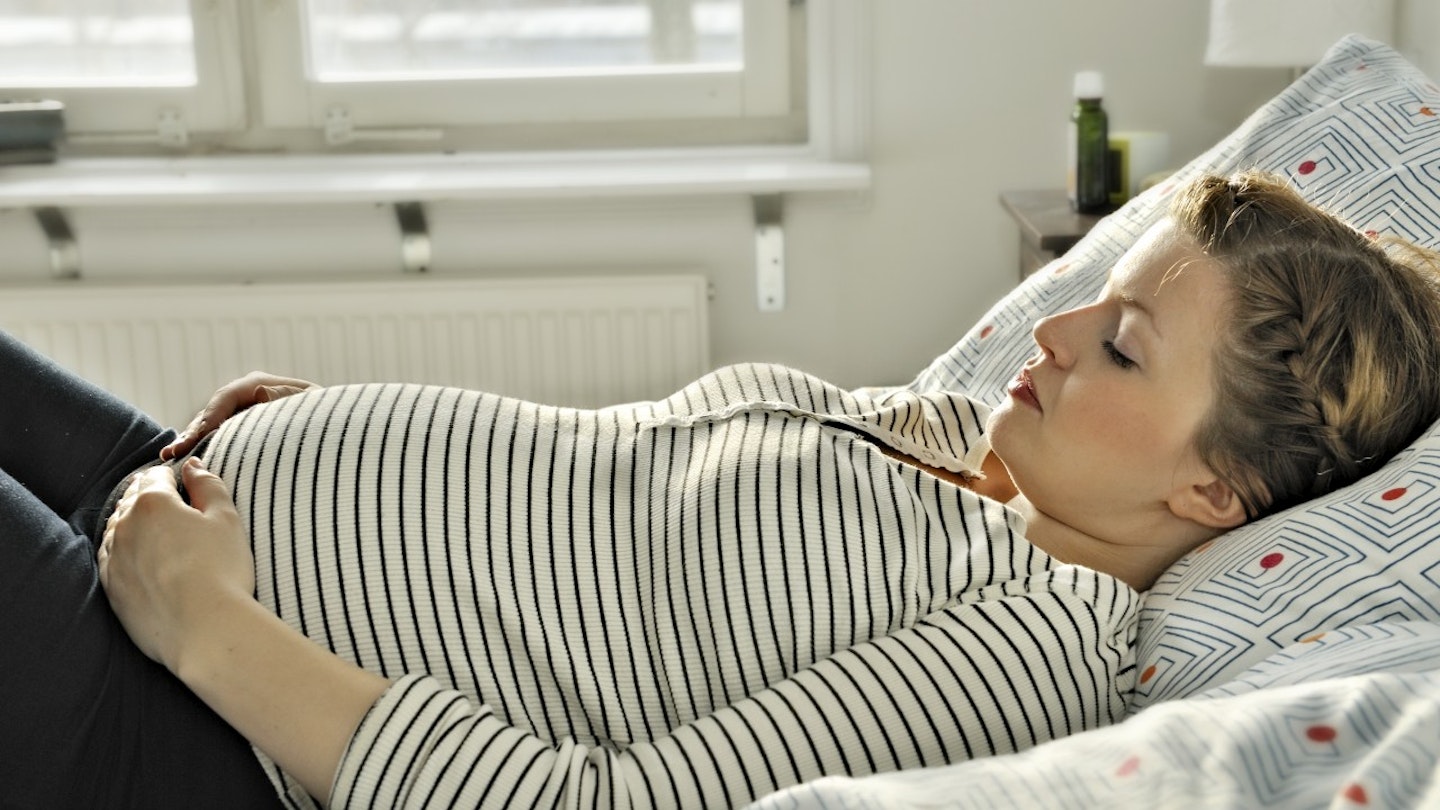Struggling with sleep and insomnia during pregnancy is pretty normal. Afterall, your body is going through some mega changes and you have another little being growing inside of you - it’s serious stuff, so of course tiredness and exhaustion is completely expected.
According to the NHS, you’re most likely to feel the most tired during the first 12 weeks of your pregnancy. This is because of the hormonal changesyou’ll be experiencing at this time, which can also cause you to feel nauseous and a little on the emotional side too.
As your pregnancy progresses you’ll probably experience tiredness around the 25 week mark of pregnancydue to the extra weight your body is carrying and because it can be a struggle figuring out how to get a good nights sleep with your bump. If, however, you find you’re really struggling with insomnia during your pregnancy, you possibly may have depression and therefore should reach out to your midwife or doctor.
Whatever your reason for not being able to get enough shuteye, the most important thing to know is that being tired isn’t going to cause any harm to your baby. Although the best thing you can do is just try and rest as much as possible and accept help off others when offered, we’ve listed a few ways below to try and help you be able to get some more shuteye.
Make sure you’re comfortable

If you’re having trouble getting comfy with your bump, then try and get creative with your pillows. Use them to prop you up or rest body parts on – many women find folding a pillow over and placing between the legs can help. You may also want to invest in a specially designed pregnancy pillow for this purpose. Remember to always sleep on your left-hand side. This will help prevent the weight of your unborn baby from pressing on the inferior vena cava, the blood vessel that brings blood to your heart from the lower half of your body, thereby improving circulation. Avoid sleeping flat on your back as it can put unnecessary pressure on your overworked blood vessels and may result in palpitations, low blood pressure and shortness of breath.
Hold off on the caffeine
Drinks such as tea, coffee and caffeinated fizzy drinks should be avoided during the evenings if you’re struggling to sleep, as they’ll just make it harder for you to fall asleep.
Make sure the environment is right
Make sure your environment is right for sleeping. Switch off the TV or laptop, dim the lights and make sure the window is open. Pregnant women tend to feel hot, so make sure the room is cool enough (even if it means your partner having to sleep in a few extra layers!). If you’re feeling tense, take a warm (not hot) bath just before bed and try a few deep breathing or relaxation exercises. Staying relaxed is the most important thing you can do. Anxiety and looking at the clock (turn it around so you can’t see it) will only make it harder to go back to sleep. If you can’t drop off, try reading a book for a while or get up and have a warm drink of milk.
Exercise

Tiredness is only to be expected in the latter stages of pregnancy, but try to get some exercise each day if you can. A brisk walk in the park, swimming or a yoga class will make for a healthier pregnancy and help you to sleep at night. Exercise in the day or early evening, and not just before bed, as this can prevent you from dropping off. Doing a few gentle leg stretches may help to reduce leg cramping at night.
Embrace the naps
If you find yourself feeling tired during the day, then take a nap! Don’t be put off by the fact that you don’t normally do this or because you’re worried you may not be able to sleep later. If you’re really struggling to sleep or with insomnia during your pregnancy, take advantage of getting some shuteye whenever you feel tiredness coming on.
